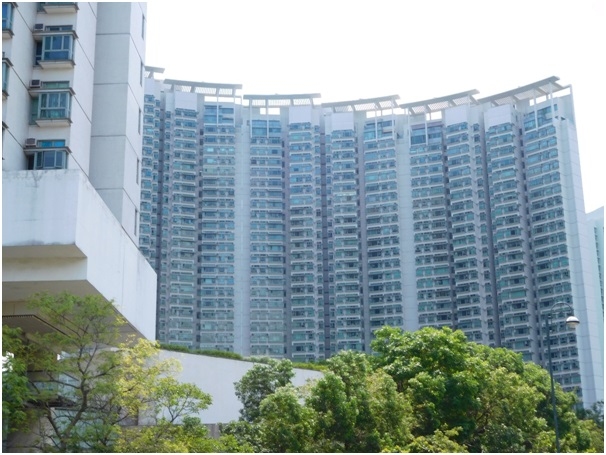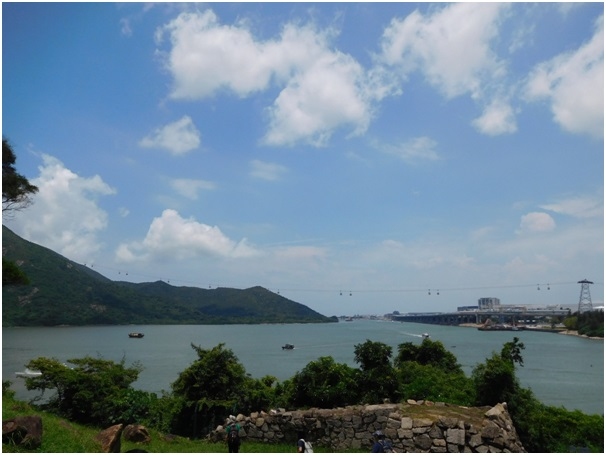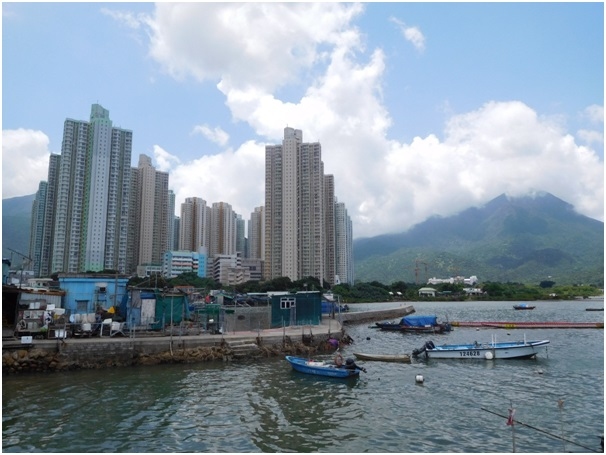Tung Chung New Development – a social-political perspective
Since my arrival to Hong Kong back in January of this year, I have learned many things about this city. But if there were to be sticking points, Hong Kong – Beijing patronage, the city’s ravenous thirst for wealth, Mainland migration and the tenuous state of Hong Kong democracy would all come to mind. These major themes I’ve come away with surmount to a unifying theme: Hong Kong’s present day struggle between government and civil society has cast a shadow of doubt over the future of the city. My recent trip to Tung Chung and Ma Wan Chung were helpful reminders of this. Environmentalists from Green Sense pointed out how they are against the pointless wastage of resources on infrastructure projects like the third airport runway, land fill to support the Hong Kong- Macau- Mainland Bridge and the public housing projects in Ma Wan Chung. The government is under pressure from Beijing to increase these development projects that will provide Mainland with greater connectivity to Hong Kong. Furthermore, the uncontrollable flow of Mainland migrants to HK and the pressure to build housing for them places a burden on Hong Kong’s democracy, environment and local populations. But as an outsider, what I’ve seen in these series of unfortunate environmental events hasn’t been the negative environmental impacts themselves, but the effects these development schemes have on the government- civil society relationship. In the future, the government may find itself abandoned by a people unable to stomach any longer the lack of control the city has over Mainland migrant flows, or development projects. The grip Beijing holds Hong Kong in, which is growing constantly it seems, could drive the city, its people and its natural environment to a point of no return. It’s a shame the tour revealed this edge of Hong Kong, casting a shadow over the obvious beauty of the mountains, which should have been the main focus for us all.

Walled buildings in Tung Chung. Though quite modern, they present the same old problems. A lack of spacing prevents winds and sunlight from getting indoors which promotes poor air ventilation and increased temperatures at street level.
Before we got to the Ma Wan Chung fishing village, we stopped at the Tung Chung Battery, which allowed us to observe the Hong Kong- Macau- Mainland Bridge Connection and the Airport. Green Sense is against the connection, and, as it turns out, the airport 3rd runway project. What they meant was, more specifically, the waste of resources that the expansion represented. The problem they have with this is not just the obvious noise and air pollution that will be a product of the runway, but the futility of such a project. The bridge connection is being argued against as it pollutes the ocean and is killing off the local Pink Dolphin population; land fill is being blamed for much of this. But what I found interesting about these two topics of protest was how local discontent for the HK government- Mainland collusions were used as the baseline for their protests. The bridge and the runway are products of the government’s desire to fulfil the wishes of Beijing; to improve the connection between HK and Mainland. The major sticking point for me though was not so much the environmental damage being done, but the socio- political damage. To me, what is more noticeable is how social unhappiness leaks its way into conversation pertaining to these development projects. I was introduced to a weed called the Mile-a-Minute Weed, which uses other weeds to climb up and surpass them in height and growth. The victim weed then recedes into the background having fulfilled its job. This Weed was likened to me, by the tour guides, as the Mainlanders coming into Hong Kong and displacing the locals. It was at that point that I realised how big an issue this migrant scare was; that even the activities of a weed are enough to remind locals of Mainland problems that lead onto the environmental and development issues.

To the right is the airport and the Hong Kong- Macau- Mainland bridge connection. The connection has been argued as a waste of resources and a project toxic for the environment. Land fill needed for the bridge has polluted much of the water seen, and on the other side of the airport.
The same socio- political discontent was a major theme once inside the Ma Wan Chung fishing village, the wetlands and the mangroves. Near the village are a number of high-rise buildings that were meant to be for middle class income earners. However, during the SARS epidemic in the early 2000’s, they were opened up as public housing. Now however, Green Sense fear that they, and their residents, have been forgotten by the government. Renovations of the shopping outlets in the housing estate are provoking fears that the store will start selling products they can’t afford. The SCMP reported that instead of fostering modernisation, the housing developments has helped isolate residents of the estate and fishing villagers. On top of this, a second building estate is being constructed. The obvious environmental and aesthetic damage is being done, but again I found that the biggest damage being done was to the relationship between the government and the people. The new estates are allegedly for new Mainland migrants. Roy Tam Hoi- pong, chief executive (voluntary) of Green Sense, told me that every day roughly 150 Mainlanders move to HK. This equates to about 54-55,000 new migrants every year that the HK government has no control over. To me what seems to anger the people more is the fact that their government has no control over their immigration policy. This in turn is the source of the environmental problems they protest against. Again, what I gathered as the major theme from the ecotour was not so much the immediate environmental impacts of the development project, but the reason for them.

Losing out to modernity: Poor, urban families and fishing villagers are drowning in the push for development that is isolating, rather than connecting, Ma Wan Chung residents. Building for another estate can be seen to the right of the apartments.
Overall, what I got from the ecotour was that there is a large, and ever increasing, rift between the government and the people. The environmental impacts have been clear, but impacts these projects are having on the peoples perspectives on the government is equally, if not more, striking. The lack of control the government has over its own polices, regarding immigration and development, are the cause of much social dissatisfaction. The government, ham strung by Beijing, must develop Hong Kong to meet the populations needs. In doing so, the environment and the locals suffer. How the present predicament is going to impact the future is something worth paying attention to.
Ben Walsh - Student from summer internship programme 2016
Comments



